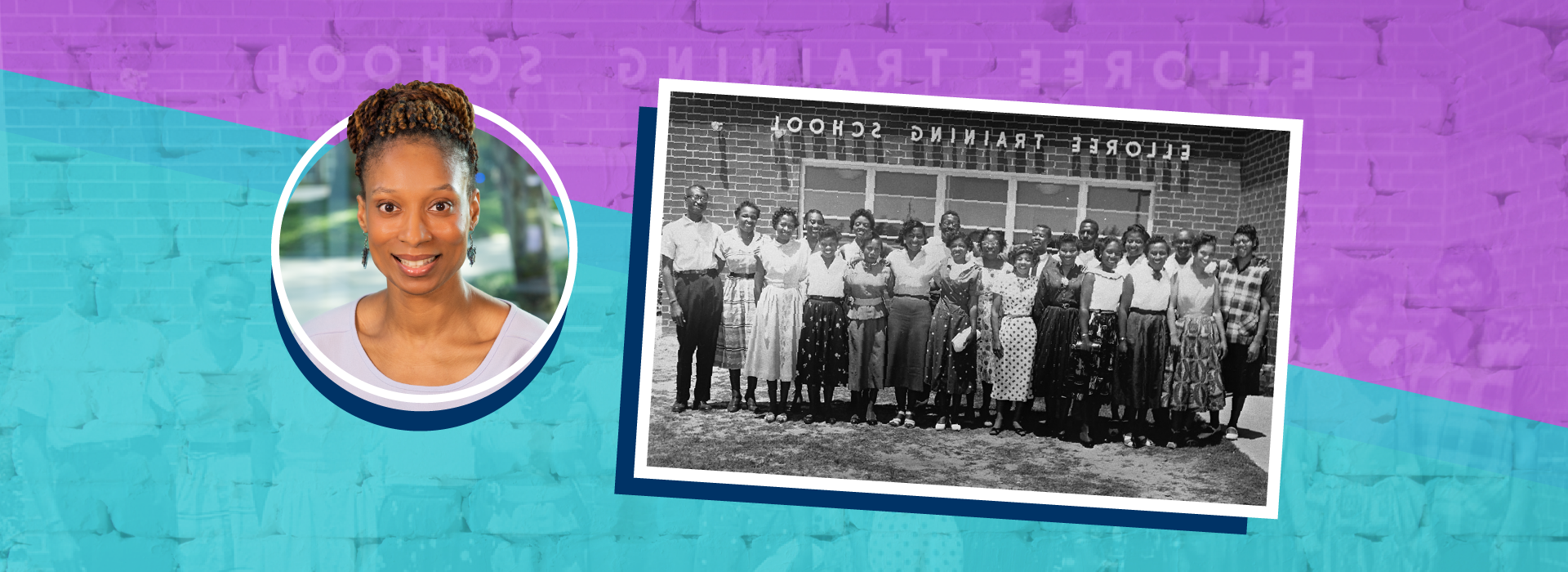11/09/2021
Faculty Spotlight: Answering History’s Questions
Teaching the Public About the Civil Rights Movement
To better understand the historical roots of education inequalities, Candace Cunningham, Ph.D., researches the role of public school teachers in the civil rights movement from the World War I era to the 1970s.
Cunningham, an assistant professor in the Dorothy F. Schmidt College of Arts & Letters, earned both her master’s degree and doctorate in history at the University of South Carolina (USC). During her studies at USC, Cunningham said she realized that the historical literature did not address the important role public school teachers played as front-line activists in South Carolina’s civil rights movement, which became the focus of her research.
Cunningham comes from a family of public school teachers. Her fascination for this topic grew when she learned more about her grandparents’ generation, she said. During her graduate work, she said “my dad told me about how my grandparents navigated through the limitations of Jim Crow segregation as they helped educate students as a public school principal and teacher. My family’s history and success drove me to learn more about their history.”
After earning her degrees, Cunningham taught in USC’s Opportunity Scholars program. She was a visiting assistant professor at Stetson University in Florida, before joining FAU to continue her research. She aims to raise awareness surrounding the issues of the past, and how they are still seen today in racial discrimination and in the politization of education or teaching practices.
“One of the major milestones in my career is my ongoing project about school teachers’ impact during the civil rights movement in South Carolina,” Cunningham said. “There were numerous case studies throughout the states during the civil rights movement, but South Carolina played an important role in leading the movement.”
Recently, Cunningham published an article titled “Hell Is Popping Here in South Carolina: Orangeburg County Black Teachers and Their Community in the Immediate Post-Brown Era,” in Cambridge University Press’ History of Education Quarterly. The article examines a little known episode in 1956 when twenty-one teachers at the same school lost their jobs for their connection to the civil rights movement.
Cunningham said her passion for history extends beyond the classroom and into the community. She works alongside local organizations and undergraduate students to collaborate on projects that focus on local history. While in South Carolina she worked with organizations such as Columbia South Carolina (SC) 63, the USC Center for Civil Rights History and Research and Historic Columbia, bringing storytellers, Black history and culture together to preserve South Carolina’s history. She has presented her research at multiple historical conferences, including the Association for the Study of African American Life and History, the History of Education Society and Southern Labor Studies.
“I want to make major intellectual contributions to the public’s understanding of the Black civil rights movement, and the role of education and Black educators in the United States,” Cunningham said. “Beyond that, I hope to lead major undergraduate and graduate student research projects that push students to engage with on-campus and off-campus communities, and to make rigorous academic research accessible to a broad audience.”
If you would like more information, please contact us at dorcommunications@kome-shibahara.com.
Listen to the Podcast
Black Teachers & The Civil Rights Movement in South Carolina
Learn more about Candace Cunningham’s research on Unsung History’s podcast here.
